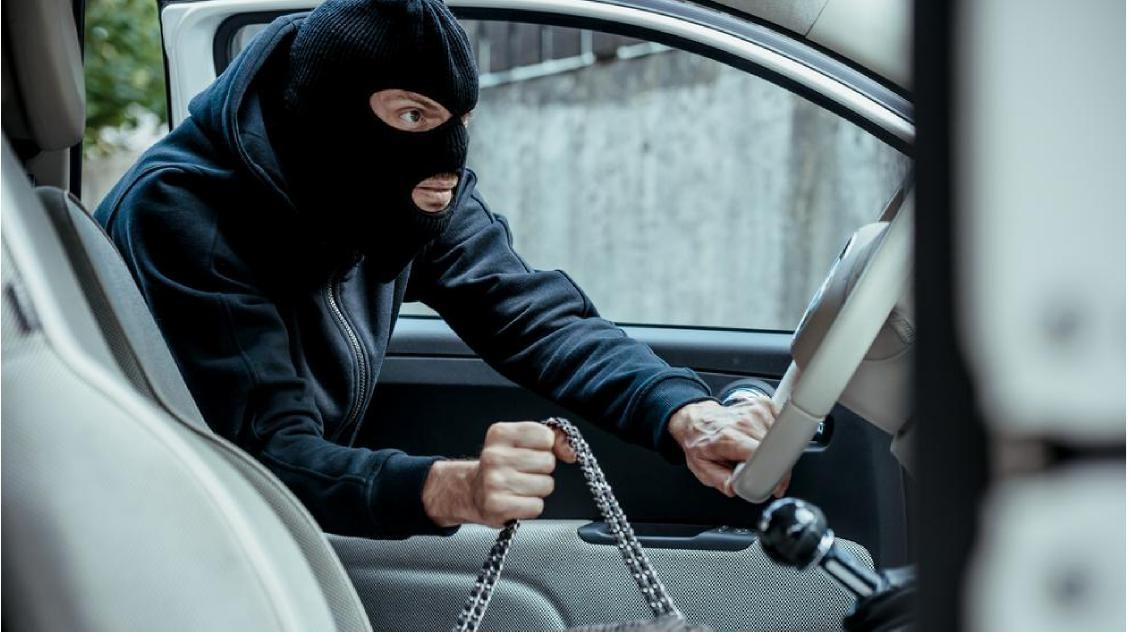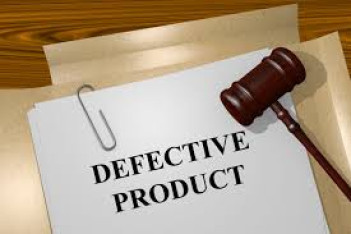What to Do If Someone Claims to Have Your Old Stolen Car
Discovering that someone claims to possess your old stolen car can be alarming and confusing. Whether this occurs years after your vehicle was reported stolen, it is crucial to understand your rights as a lawful owner and the proper steps to protect yourself legally and physically. This article serves as a comprehensive guide to help you navigate such situations effectively and safely.
Understanding Vehicle Ownership and Title Validity in North Carolina
In North Carolina, owning a vehicle legally requires holding a valid title issued by the state's Department of Motor Vehicles (DMV). The title is the most important document signifying your lawful ownership of a vehicle. If you maintain a valid North Carolina title for your car, it means you are recognized by law as the rightful owner, regardless of circumstances surrounding its theft or ownership disputes.
It is important to note that the possession of a duplicate title issued by the DMV supersedes any other paperwork found inside the vehicle, including old registrations, bills of sale, or notes left by previous owners. This principle ensures clarity when ownership is contested or suspected to be fraudulent. Thus, maintaining an up-to-date and valid car title is your primary evidence as the owner.
Never Meet Claimants Privately or Sign Documents
If someone unexpectedly contacts you claiming to have your stolen vehicle, it can be tempting to meet privately or sign documents to resolve the matter quickly. However, such actions pose substantial risks. Meeting someone alone or without official supervision could compromise your personal safety, as there is no guarantee the claimant is acting in good faith.
Moreover, signing any documents without legal advice or verification can inadvertently transfer rights or create legal liabilities. Fraudulent individuals might exploit such opportunities to assert false ownership or drag you into legal disputes. Therefore, refrain from any private meetings or signing agreements until you have consulted legal authorities or experts.
Steps to Take Upon Learning of a Claimed Possession
- Contact Local Law Enforcement Immediately: Report the situation to your local police department or sheriff’s office. Provide all relevant information about the vehicle, including the Vehicle Identification Number (VIN), your title details, and any communications from the person claiming possession.
- Reach Out to the North Carolina DMV License and Theft Bureau: This specialized division handles stolen vehicle reports and related disputes. Forward them the VIN and ask for a verification of the vehicle’s status or if it has an active stolen vehicle report.
- Avoid Direct Negotiations: Until you obtain official guidance, avoid any direct dealings with the claimant. The authorities are best positioned to investigate claims and initiate recovery procedures safely and legally.
- Document Everything: Keep a record of all interactions, written or verbal, related to the claim. Save emails, text messages, and notes about phone calls or meetings. This documentation could be vital if legal action is necessary.
Legal Implications of Possessing a Stolen Vehicle
Regardless of how many years have passed since a vehicle was stolen, possessing or attempting to claim a stolen car remains a serious criminal offense. In North Carolina, as in other states, the law does not forgive possession of stolen property based on elapsed time. Even after 22 years, ownership rights and criminal liability apply strictly.
The law protects the original owner’s title rights and penalizes those unlawfully possessing or transferring stolen vehicles. If an individual attempts to sell, register, or use your stolen car, they face potential charges such as receiving stolen property or fraud. These charges carry serious consequences, including fines, restitution, and possibly imprisonment.
How Authorities Handle Vehicle Recovery and Legal Ownership Disputes
When law enforcement or the DMV confirms a vehicle is stolen and you hold the lawful title, official recovery processes begin. Police may recover the vehicle through a raid, traffic stop, or investigation. Once recovered, the car is returned to its rightful owner, and the claimant may face prosecution.
In some cases, legal action such as a civil lawsuit may be necessary to assert your ownership rights, especially if the vehicle’s whereabouts remain uncertain or the claimant contests ownership. Consulting an attorney experienced in property and motor vehicle law is advisable to navigate these complex proceedings.
Protecting Yourself: Ownership and Personal Safety First
- Maintain all ownership documents, including the current and duplicate titles, registration papers, and any receipts or legal correspondence.
- Regularly check with the DMV for any updates or irregularities regarding your vehicle’s status.
- If approached by individuals claiming possession, avoid personal confrontations and never agree to private meetings without legal or law enforcement presence.
- Educate yourself on your rights as a vehicle owner under North Carolina law to respond confidently and appropriately.
Your safety is paramount, so always involve law enforcement or legal professionals when dealing with stolen property claims. This approach reduces risks and ensures lawful resolution.
The Importance of Vehicle Identification Number (VIN) Verification
The Vehicle Identification Number (VIN) is a unique 17-character code assigned to every vehicle manufactured after 1981. This code serves as the vehicle’s fingerprint, allowing for precise tracking, registration, and verification. In instances where ownership disputes arise, the VIN is critical for confirming the true status of a vehicle.
Before engaging with any party claiming to possess your stolen car, provide the VIN to law enforcement or the DMV. They will check whether the vehicle still holds any active theft reports, liens, or pending legal issues. This step is essential for preventing fraud and accelerating legitimate recovery processes.
Common Scams and Fraudulent Practices to Watch For
Unfortunately, the issue of stolen vehicle claims often involves scams targeted at unsuspecting owners. Common fraudulent practices include:
- Impersonating law enforcement or DMV officials to coerce individuals into signing over rights.
- Requesting payment or personal information in exchange for return or verification.
- Arranging private meetings to exchange documents or vehicles without legal oversight.
- Producing counterfeit or forged documentation to substantiate false claims.
Being aware of these scams helps you remain vigilant and protects your interests by ensuring that all communications and transactions go through verified legal channels.
How to File a Stolen Vehicle Report Correctly
If your vehicle has been stolen, timely reporting is crucial. To file a stolen vehicle report in North Carolina, you should:
- Contact your local police department promptly and provide detailed information about the vehicle, including the make, model, color, year, and VIN.
- Submit any relevant evidence such as photographs, documentation of ownership, and descriptions of distinguishing features.
- Request a copy of the police report or case number for your records and follow-up communications.
- Inform your insurance company to initiate claims or receive advice on protecting your financial interests.
Properly filing a stolen vehicle report increases the chances of recovery and legal protection.
Long-Term Implications of Vehicle Theft and Ownership Disputes
Even when vehicles have been stolen for several years, the law continues to recognize the original owner's rights. This means that cases involving stolen vehicles can remain active legally and subject to resolution regardless of time elapsed. In fact, possession of stolen property remains a criminal offense indefinitely.
For owners, this legal framework means that maintaining accurate and current documentation is vital. For claimants or purchasers of used vehicles, this underscores the importance of thorough background checks to avoid unintentional criminal liability.
Legal Assistance and Resources for Vehicle Owners
Navigating stolen vehicle claims and disputes can be complex and emotionally draining. Seeking assistance from qualified professionals enhances your ability to resolve matters swiftly and justly. Resources available to vehicle owners include:
- Legal experts specializing in motor vehicle and property law.
- North Carolina DMV License and Theft Bureau for official verification and guidance.
- Consumer protection agencies providing advice on scams and fraud prevention.
- Local law enforcement for enforcement and recovery assistance.
By leveraging these resources, you can secure your ownership rights and protect your investment.
Summary Checklist: What to Do If Someone Claims Your Old Stolen Car
- Do not meet the claimant privately or sign any documents without legal counsel.
- Confirm your ownership by ensuring your valid North Carolina title is current and accessible.
- Provide the vehicle’s VIN to law enforcement and the DMV License and Theft Bureau for verification.
- File or review a stolen vehicle report with authorities as appropriate.
- Allow law enforcement to handle vehicle recovery or initiate legal proceedings.
- Keep detailed records of all communications and legal documents.
- Consult with legal professionals experienced in vehicle and property law.
- Remember that possession of a stolen vehicle is a crime, no matter how long ago the theft occurred, including after 22 years.
- Prioritize your safety and legal protection above quick resolutions or private agreements.
In conclusion, if you encounter a situation in which someone claims to have your old stolen car, it is imperative to act cautiously and within the legal framework established by North Carolina law. Your valid title establishes you as the lawful owner regardless of time passed, and should be the foundation of all actions taken. Avoid private meetings or signing any documents without professional advice, and immediately engage law enforcement and the DMV to verify status and initiate recovery if appropriate. Possession of stolen vehicles remains a serious crime, even after many years, making it essential to rely on authorities for resolution. Ultimately, protecting your ownership rights and personal safety requires vigilance, documentation, and proper legal channels to ensure that your rights are not compromised and justice is upheld.
Consultant Legal Marketplace — Your trusted legal partner specializing in comprehensive motor vehicle ownership and recovery services. We provide expert advice, documentation review, and representation to protect your rights and ensure compliance with North Carolina state laws. Our dedicated team of legal consultants is committed to guiding clients through complex vehicle disputes with integrity and professionalism.































